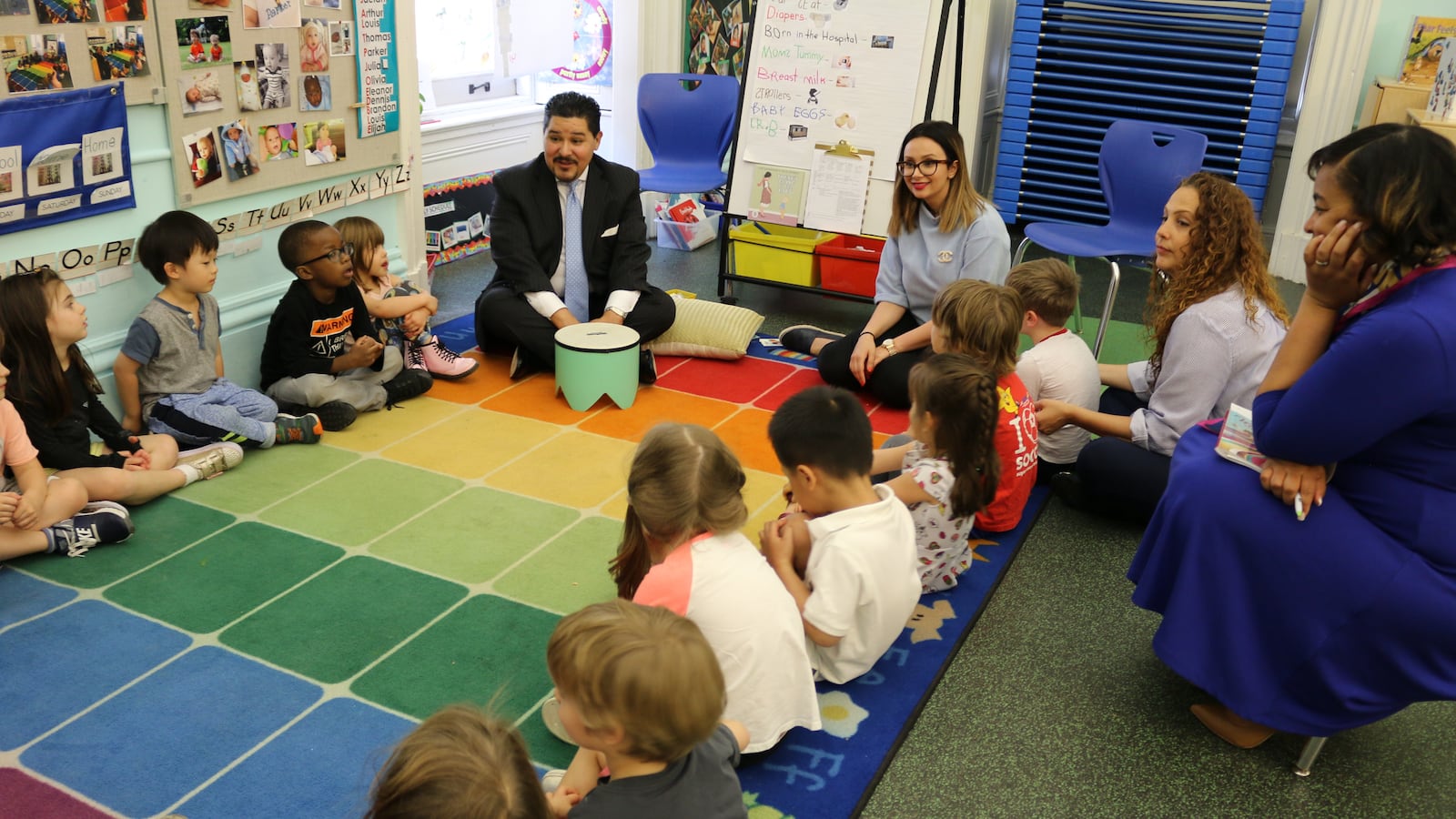New York City is moving closer toward an overhaul of its early child care system that will put the education department in charge of some programs for children as young as six weeks old — a consequential shift that signals learning begins at birth.
Among the changes the education department is proposing: a universal enrollment system that could ease the burden on parents looking for child care, and an explicit focus on racial and economic integration from the earliest ages.
The moves are outlined in a white paper released Monday that serves as a roadmap for what families and providers might expect as responsibility for early child care programs transitions from the Administration for Children’s Services to the education system.
Along with an expansion of pre-K to eventually serve all of the city’s 3-year-olds, Mayor Bill de Blasio announced in 2017 that the education department would begin to oversee early child care programs that receive public funding, such as Head Start. (Oversight of voucher programs for subsidized care will not shift to the Department of Education.)
The first steps in the transition will begin this winter, when the city releases contracts for child care services to be delivered beginning in 2020. More than just a bureaucratic shift, how the education department oversees those contracts could have far-reaching consequences for families and providers.
Shael Polakow-Suransky, president of the Bank Street College of Education, said the transition is “very promising” for creating a more unified system, one that could help lead to an expansion of services for young learners when their brains are growing most. But it’s crucial that the change goes smoothly for providers who often operate on thin margins, he said.
“There is a risk that you disrupt or destabilize good, strong programs that are out there. I think that is the thing the Department of Education needs to be careful and guard against,” he said.
The white paper lays out how the new contracts will be parceled out and launches a 30-day window to collect comments on the contracts.
“We really appreciate that DOE understood, in such a complex transition, that it’s important to provide a written version of their vision as well as an opportunity for providers to provide feedback,” said Gregory Brender, co-director of policy and advocacy at United Neighborhood Houses, a federation of settlement houses that pushes for affordable child care. “We think it’s a great step in the right direction.”
With the transition, Brender said the education department will also take on added responsibility for the thorny issue of pay parity. Pre-K teachers in city-administered programs make far more than their counterparts in community-based programs.
“If we’re going to have a truly unified system, there has to be parity,” Brender said.
In an effort to boost diversity, the education department’s roadmap says programs may be required to set up classrooms that include children from low-income families alongside children from more affluent ones. For example, organizations would be encouraged to serve side-by-side children who enroll through the city’s Pre-K for All program, which is open to families regardless of economic status, and students who enroll through programs specifically for low-income families.
New York schools are among the most segregated in the country, and recent research has found pre-K classrooms are even more segregated than kindergarten. More integration could have a major benefits for children: Studies have shown that preschool students in diverse classrooms are less likely to show bias, and students from all socioeconomic backgrounds show learning gains in mixed classrooms.
For parents, bringing more programs under one roof could make it easier to navigate their child care options. Currently, low-income families who qualify for Head Start programs must fill out applications on-site and admissions are first-come, first-served. That can be a disadvantage for parents who struggle to pay for transportation or have inflexible work schedules.
Instead, the city is proposing a common enrollment system that will be run and managed by the education department. Such a system is already in place for the city’s pre-K programs, and 85 percent of families with 4-year-olds get matched to one of their top three choices, according to the education department.
“I’m excited to continue working with our community-based providers to build on the success of 3-K for All, Pre-K for All, and EarlyLearn and support greater quality, equity, and student integration throughout the early childhood system,” Deputy Chancellor Josh Wallack said in an emailed statement.

